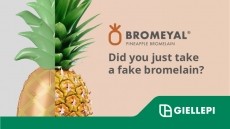DMAA in the dock
Ireland: DMAA products are “illegal medicines”

The Food Safety Authority of Ireland (FSAI) listed nine “known” pre-workout brands including Crack, Napalm and Jack3D as being unauthorised medicines and warned consumers off them and retailers to remove them from store shelves or online catalogues.
“Food business operators, particularly sport and health stores and Irish based internet sales companies are requested to remove any food supplements or products containing DMAA from sale,” FSAI advised.
It warned consumers who have used the products to cease doing so and dispose of the products and visit a doctor if they felt any ill-effects.
Local inspectors have been directed to scan outlets for the products and alert the FSAI if they are found on-sale.
“...significant risk to consumer health...”
In agreeing with the assessments made by authorities in the US, Denmark and other countries, the agency noted, “DMAA is an illegal central nervous system stimulant related to amphetamine.”
“It can cause high blood pressure, nausea, cerebral haemorrhage, stroke and in serious cases can be fatal…There are several documented cases of severe negative effects on the heart and brain which indicate that consumption of DMAA, especially in combination with caffeine, poses a significant risk to consumer health.”
The other six products named and shamed by the FSAI are Hemodrene; Hemorush; Hemo-Rage; Marrow Matters; Spriodex and Lipo-6 Black.
But it added the list, “should not be viewed as including every product containing DMAA.”
EU food law expert Luca Bucchini, from Rome-based Hylobates Consulting, said recently that further actions from European countries were likely.
"It is probable that several adverse events have occurred in Europe as well, but have not been publicised yet,” he said.
US-based USP Labs - the maker of the Jack3D - has sued retailers for making disparaging remarks about Jack3D and DMAA, and like most of the mainly US-based manufacturers that have been called into question, continues to defend the safety, efficacy and legitimate sourcing of the substance.
The geranium sourcing question
Aside from any safety concerns, part of the controversy over the ingredient is whether or not it is sourced from the geranium plant – which may win it approval as a food ingredient in some jurisdictions – but only one disputed study (Ping et al, 1996) has demonstrated this.
Many other studies have not reached the same conclusion including the most recent, published last month in the Journal of Analytical Toxicology.
There the researchers tested a range of DMAA products and concluded: “The dietary supplements that contained MHA [DMAA] as one of their ingredients (allegedly from geranium or geranium stems) contained large amounts of MHA.”
“The amounts of MHA measured are incompatible with the use of reasonable amounts of P. graveolens [geranium] extract or concentrate, suggesting that MHA was of synthetic origin.”
The analysis was performed by scientists from ElSohly Laboratories, Phyto Chemical Services, the National Center for Natural Products Research, the University of Mississippi, and the US Anti-Doping Agency (USADA).















